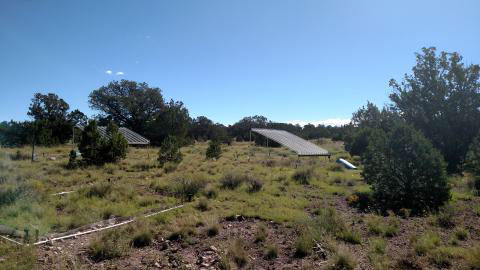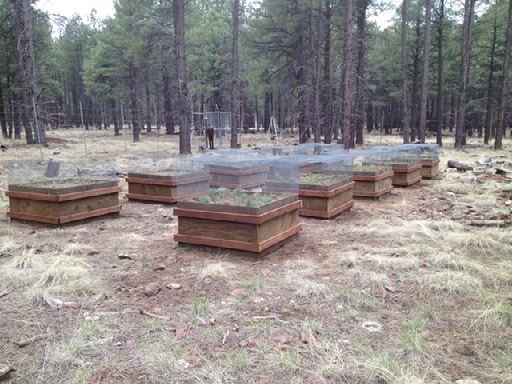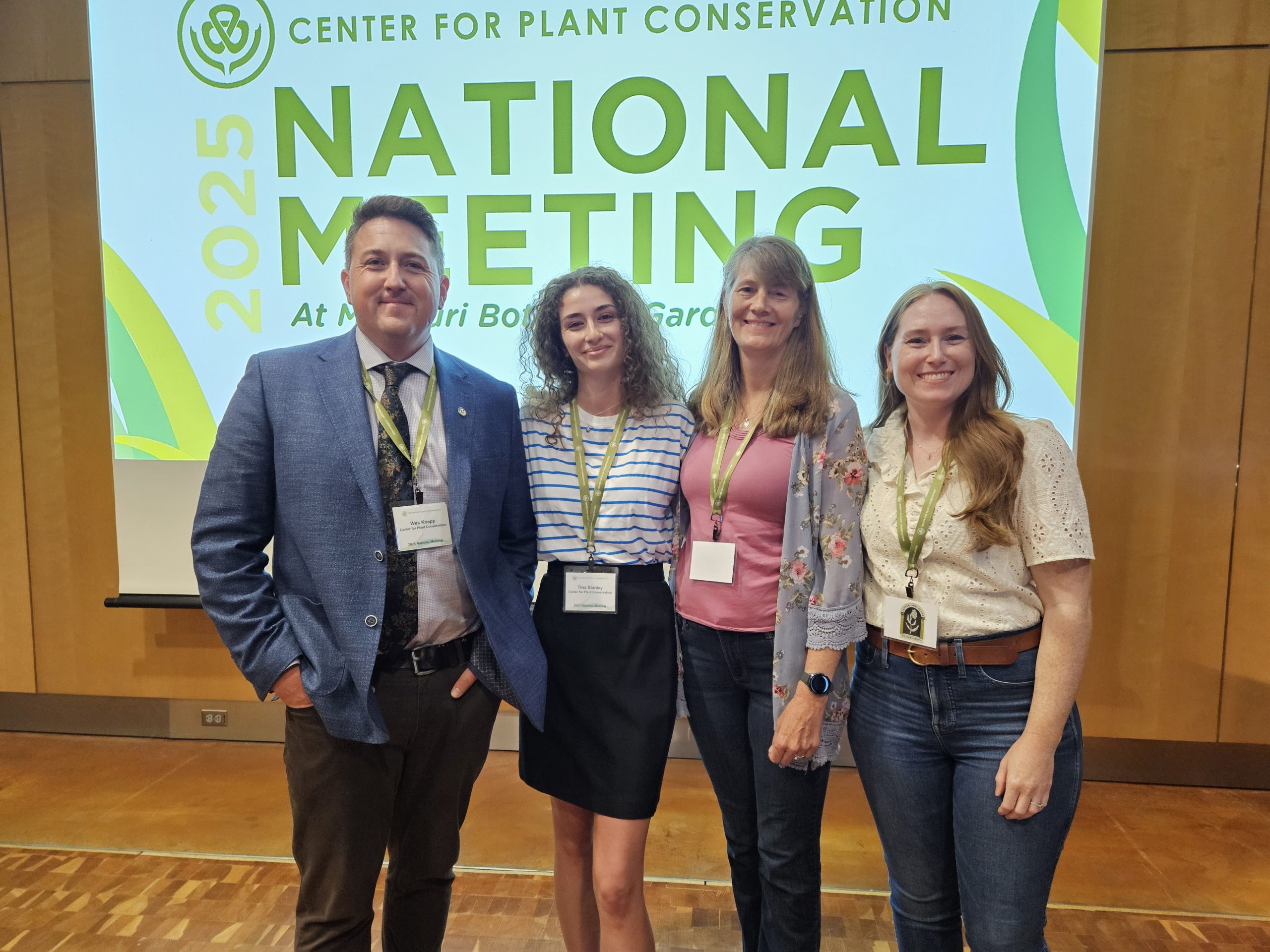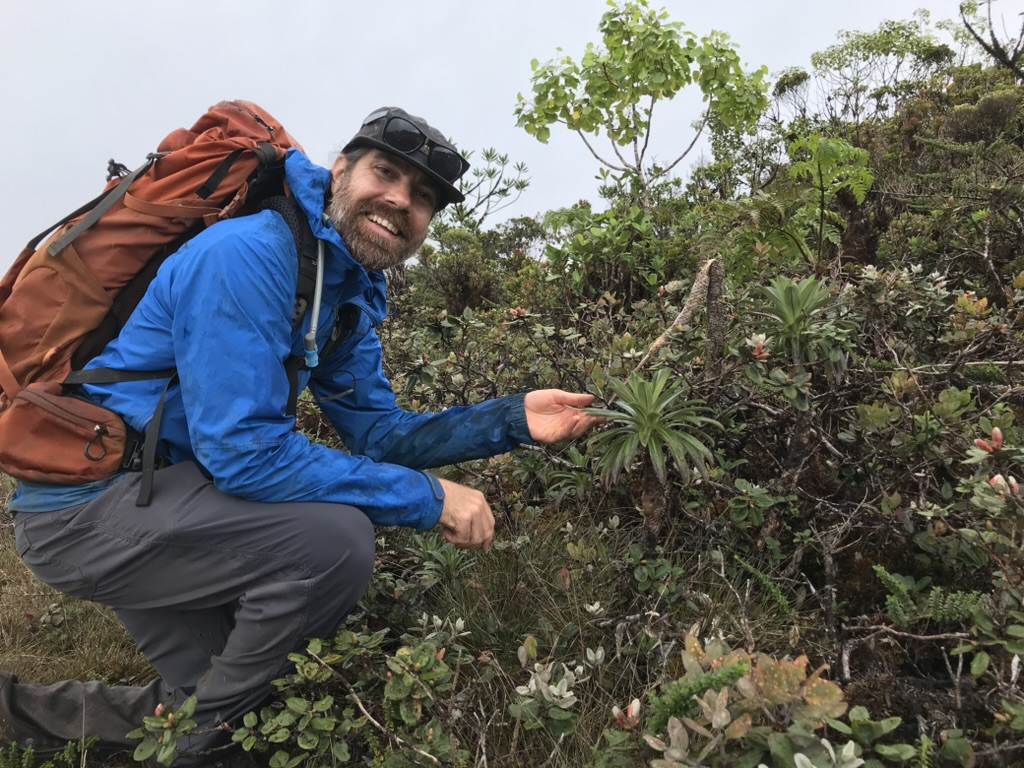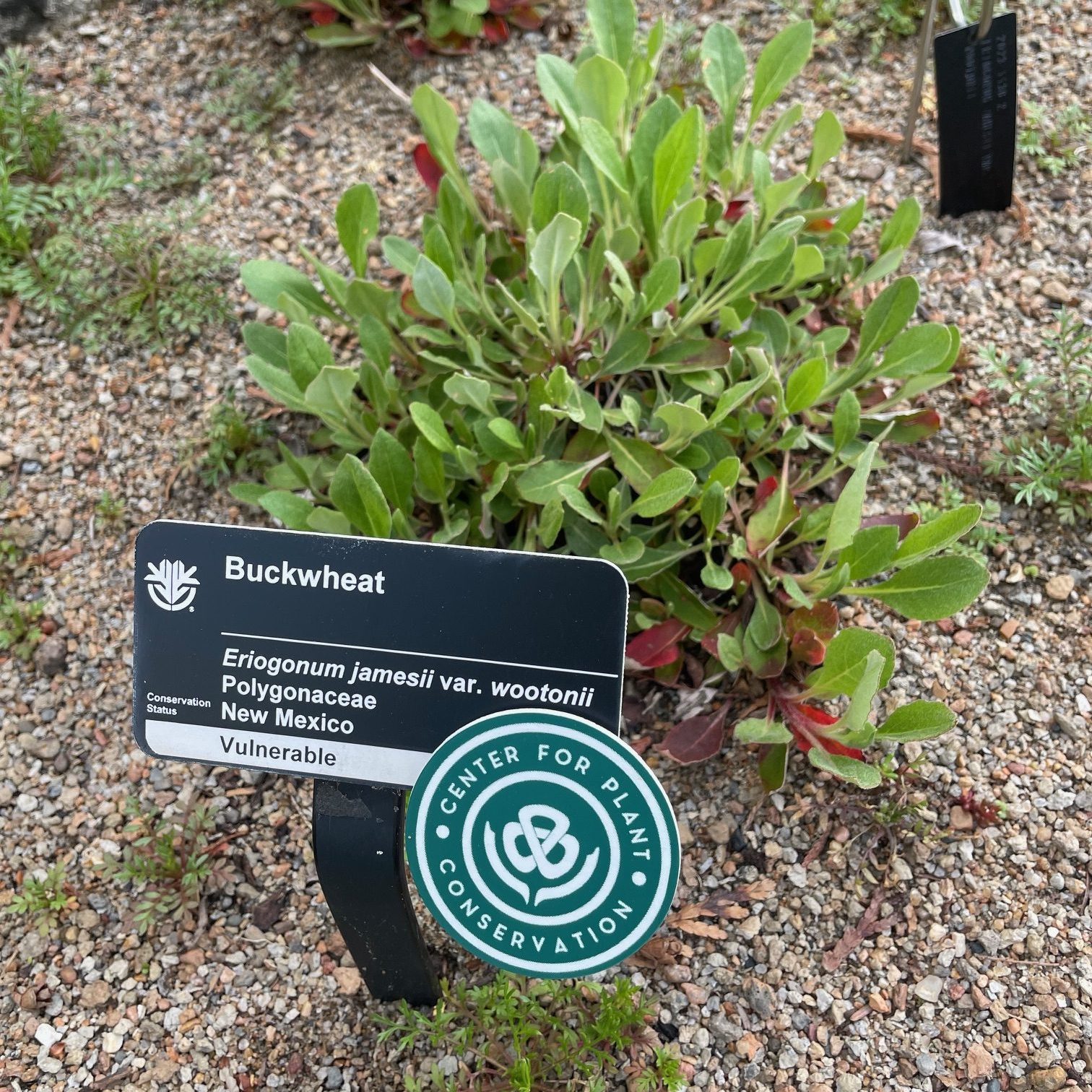Save Plants
CENTER FOR PLANT CONSERVATION
June 2017 Newsletter
It seems everyone is talking about climate change, whether it is with staff at lunch about the changes in local climate over the years or pundits in Washington, D.C. One thing is sure, many of CPC’s Participating Institutions are not only talking but working on what climate change means for the rare and endangered plants. This month, we share with you some of the work our partners are conducting on how climate change will affect plants. One area of critical importance is the plants of alpine ecosystems – the area located between the tree line and the permanent snowpack in mountainous or circumpolar regions. Recent conversations with our colleagues in Canada pointed out the Yukon Territory was the greatest concentration of endemic plants in Canada – an area that will be greatly impacted by climate change. While the impacts of climate change are daunting, the Center for Plant Conservation is working to ensure that the plants are protected.
Missouri Botanical Gardens
Let there be rain! – It seems like every year there are more reports of longer or more severe droughts around the world. And, unfortunately, this trend is expected to continue as climate change intensifies. Much of the media coverage about droughts is focused on the effects on agriculture, but it is important to remember that these droughts are affecting natural systems too, including populations of rare plants. Recently, researchers from a CPC member institution, the Missouri Botanical Garden, and Washington University in Saint Louis teamed up to see if they could improve the management of a rare, federally endangered plant (Astragalus bibullatus) in the face of worsening drought. Their research suggests that yes, we can! But, it isn’t going to be easy. . .
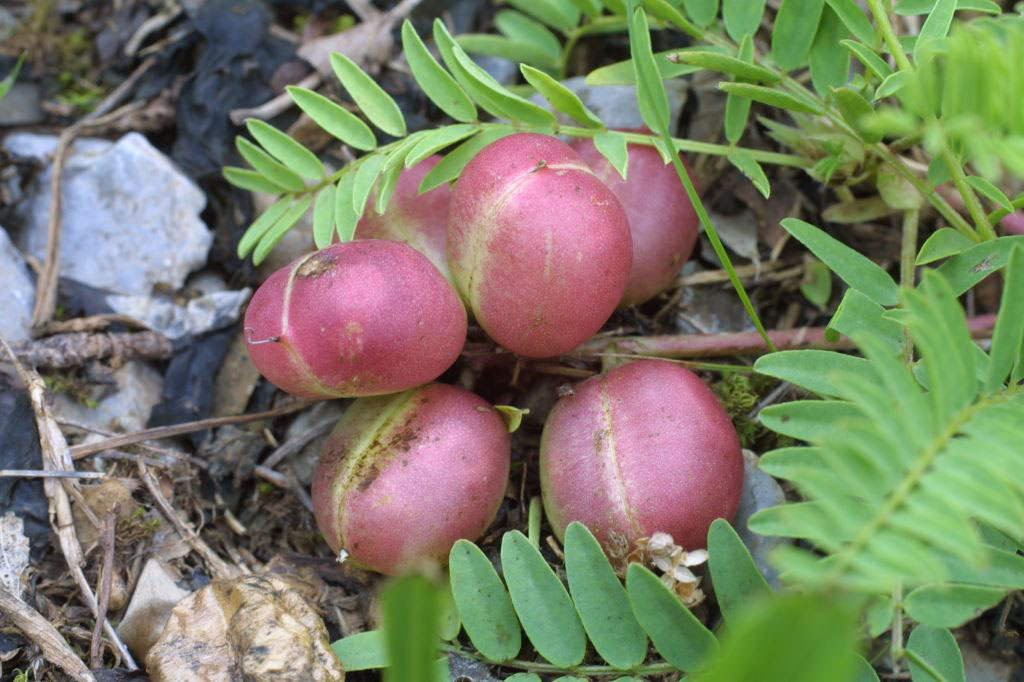
Click here to hear more about their work, but in short the study suggests that populations of rare plants should be managed for the largest increases in size possible now, before the effects of climate change become severe. And in the long run, management efforts need to become more risk-averse. One way to do that is by creating more variability in habitat structure at the landscape scale, which will decrease the chances that a single severe drought will devastate all the individuals of geographically restricted rare species. But of course, one of the best ways to decrease the negative impact of climate change on rare plants, is to support regional, national and global initiatives to reduce carbon emissions in order to reduce the severity of climate change overall.
Credit: Holly Bernardo and Matthew Albrecht; photos courtesy of Missouri Botanical Garden
Out in the field . . .
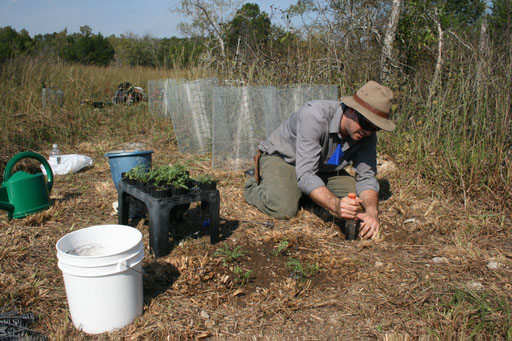
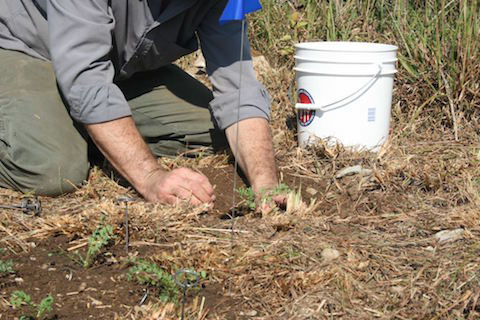
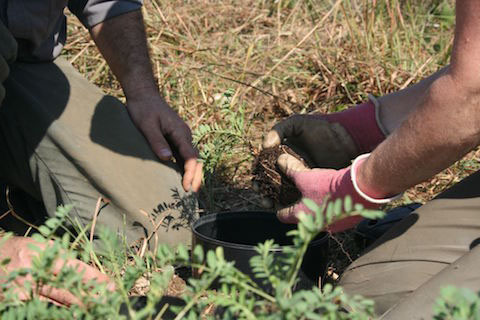
Arboretum at Flagstaff
Common garden studies, where plants taken from different populations are grown in the same environment, have been carried out for decades by agencies like the United States Forest Service. These simple experimental designs allow the researcher to identify traits in the plant that are genetic-based by keeping all the environmental variables “common”. The Arboretum at Flagstaff, in partnership with Northern Arizona University, is host to an exciting new research instrument known as SEGA or the Southwest Experimental Garden Array, that uses common garden sites. Funded by the National Science Foundation, this research tool enables scientists to examine questions addressing climate change, genetics, plant responses and so much more by using elevation as a proxy for different climates. SEGA is composed of 10 common garden sites, two of which are located at The Arboretum, spread across northern Arizona.
The Arboretum’s SEGA sites are located in their high elevation meadow at just under 7,000 feet and in the Ponderosa Pine forest. Current research projects at these sites range from looking at disease resistance in Southwestern White Pine to climate change effects on lichen to epigenetic interactions in Narrowleaf Cottonwood trees. Having active research projects on-site enables the Arboretum Research and Public Program staff to provide important interpretation of climate change, and more importantly, what the Arboretum is doing about climate change to school groups and the general public. An outdoor, interactive kiosk center was recently installed at The Arboretum to provide self-guided interpretation of the important climate change work that is being conducted on site. Within the next few years, The Arboretum aims to initiate a new research project using SEGA to examine climate change impacts on a rare Pediocactus.
Some site locations: Blue Chute; Bear Springs; Black Point; Walnut Creek; and Little Mountain.
And if you are interested in doing a research project at a SEGA garden, go here to find out more information. Research proposals are currently being accepted!
(Credit: Kristin Haskins)
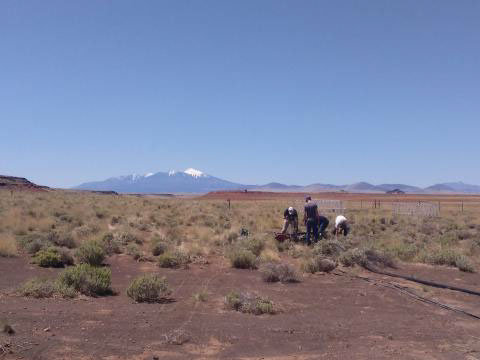
Denver Botanic Gardens
Phenology is the study of how climate affects things like bird migrations or plant flowering. It is also one of the best ways to observe how plants respond to climate change, and to predict future changes in plant communities. According to the researchers at Denver Botanic Gardens, phenological studies with respect to climate change could be improved if herbarium specimens were combined with monitoring efforts over longer periods. The researchers analyzed herbarium specimen data from Colorado’s alpine region (as alpine areas are predicted to be especially sensitive to climate change). They then assessed phenological patterns in relation to temperature and precipitation for 385 species and Growing Degree Days (GDD) for 311 species. Average low temperature, maximum GDD, and average precipitation increased over the study period. As temperature and GDD increased, their effects on specimens happened sooner, but as precipitation increased, the effects were delayed. Even with this variability, a significant trend of earlier flowering appeared when all species were analyzed together. Of the species that showed significantly earlier flowering dates, they advanced on average more than 32 days over the 61 years of the study. When assessing only specimens of species monitored in a national program (USA National Phenology Network), they found that these species showed similar trends to all of the study specimens. When selecting species for ongoing monitoring efforts, herbarium specimens are an important resource to incorporate historical patterns into assessments of climate change and phenological drivers. (Credit: Under-review manuscript abstract – provided by Denver Botanic Gardens; photo@Scott Dressel-Martin)
Learn more about Phenology, and phenological research at the Denver Botanic Gardens, here. They have also developed a Phenology Trail in Colorado, which consists of Phenology Walks – “These Walks provide the participant with places to visit, enjoy nature, collect date, and learn about supporting organizations.”
Get Updates
Get the latest news and conservation highlights from the CPC network by signing up for our newsletters.
Sign Up Today!Donate to CPC
Thank you for helping us save plant species facing extinction by making your gift to CPC through our secure donation portal!
Donate Today
